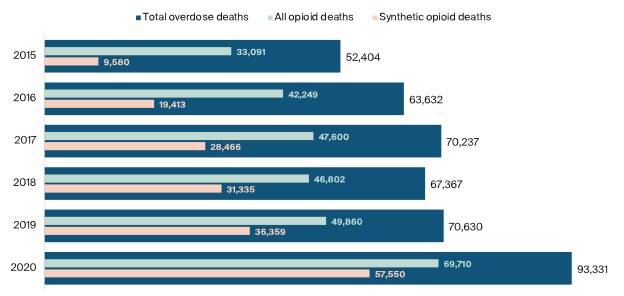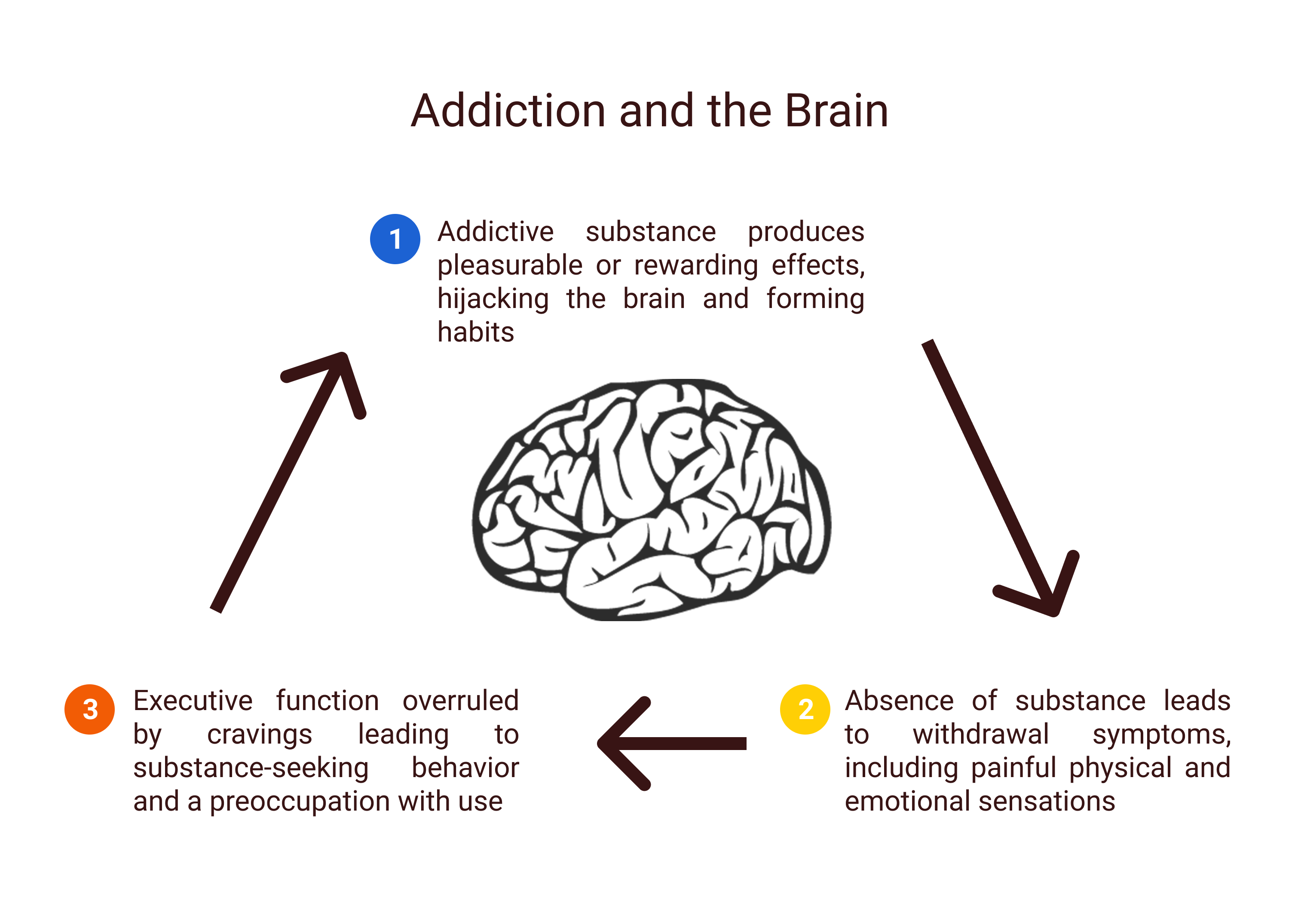The Basics of Addiction
Addiction is a much bigger problem than many people realize
The number of deaths due to drug overdose has been exploding, to over 90,000 people in 2020. That’s roughly the same number who died from diabetes and almost double the number who died from suicide. Deaths due to synthetic opioids (primarily Fentanyl) have increased even faster, going from less than 10,000 in 2015 to nearly 58,000 in 2020.

Addiction is a chronic medical condition that can be treated

While scientists and medical researchers have talked about addiction as a medical condition for many years, widespread understanding is only now starting to penetrate to non-professionals. Addictive drugs rapidly change the user’s physiology and psychology, resulting in impaired judgment, intense cravings, and painful and/or life-threatening withdrawal symptoms.
Treatment for addiction is too expensive for many people
Like many chronic conditions such as asthma and hypertension (which, like addiction, have both physiological and behavioral components), addiction can be treated. Successful treatment addresses the medical, behavioral, psychological and social components of addiction. However, comprehensive treatment that provides the highest likelihood of success is often not covered by insurance and out of reach for many.
